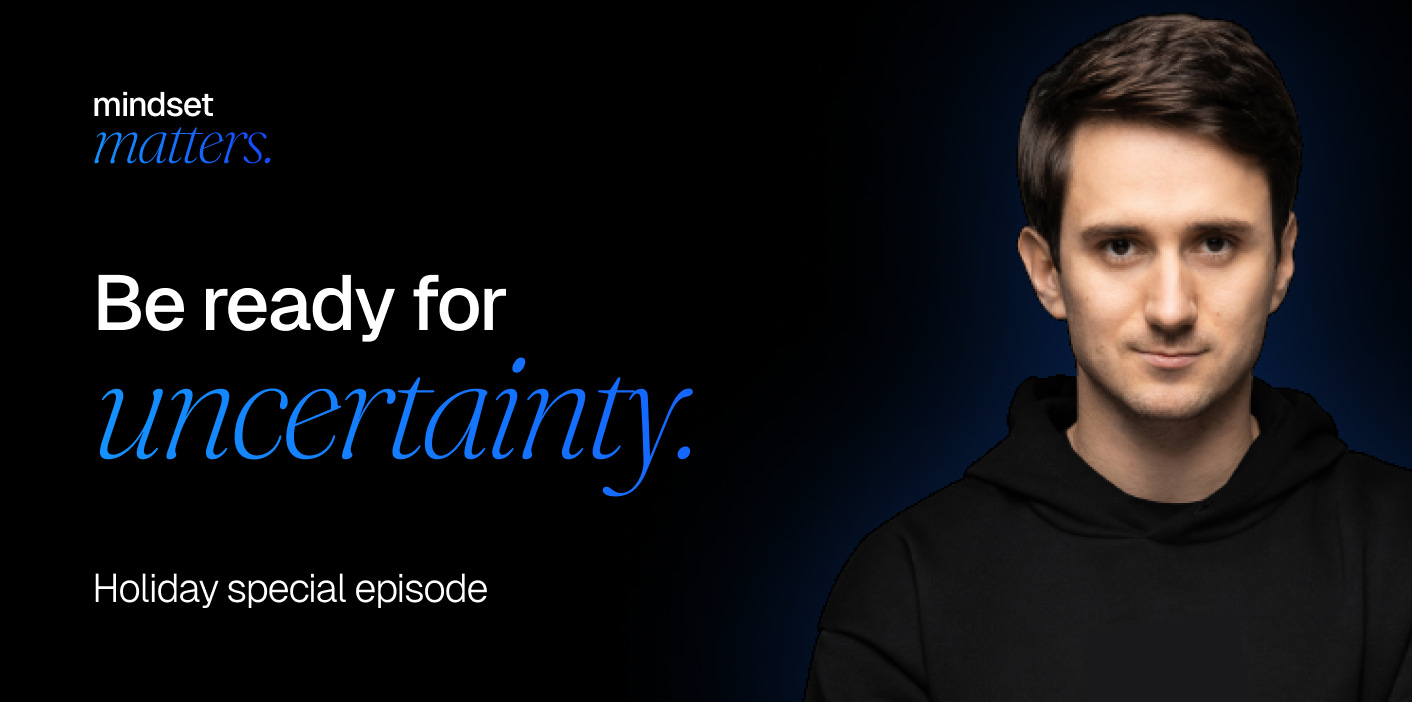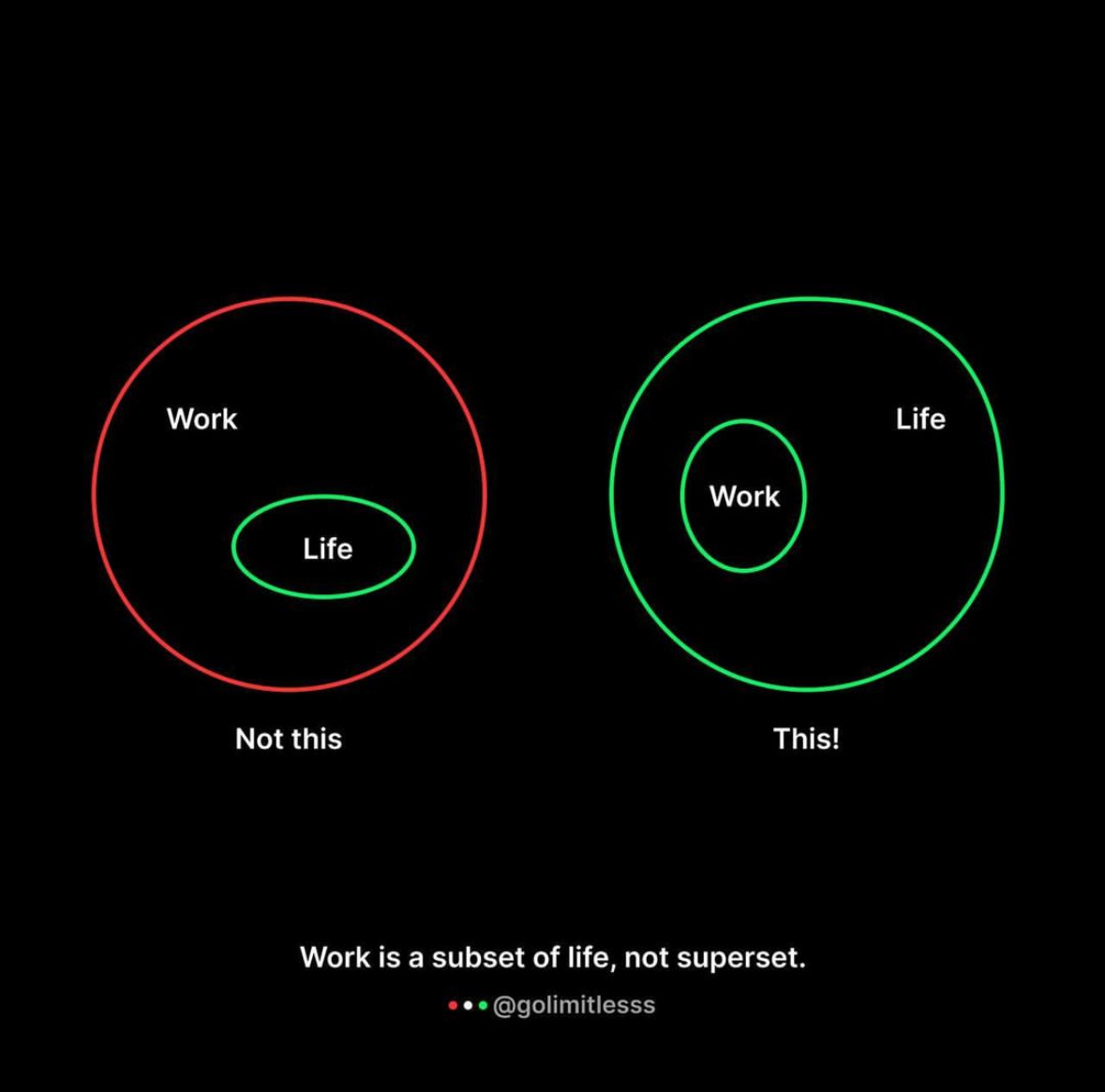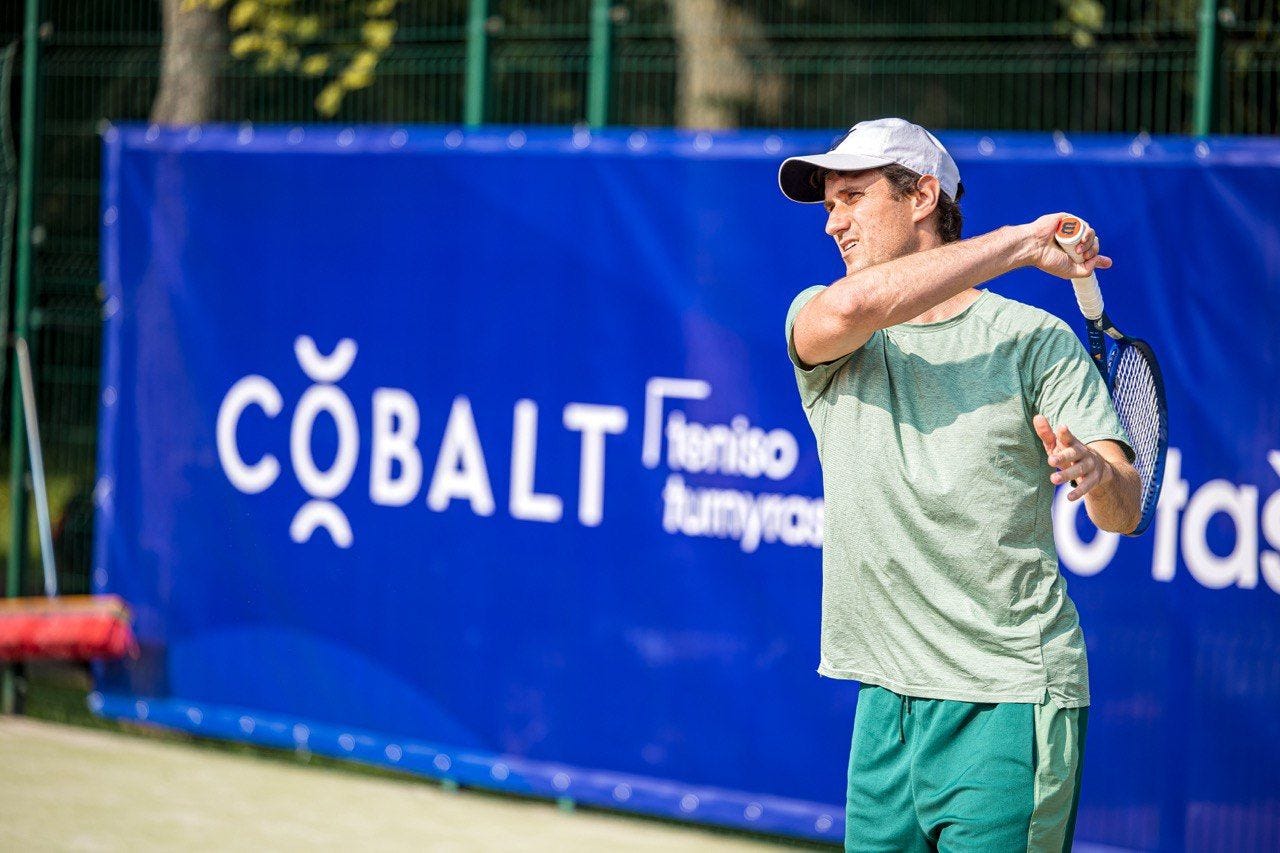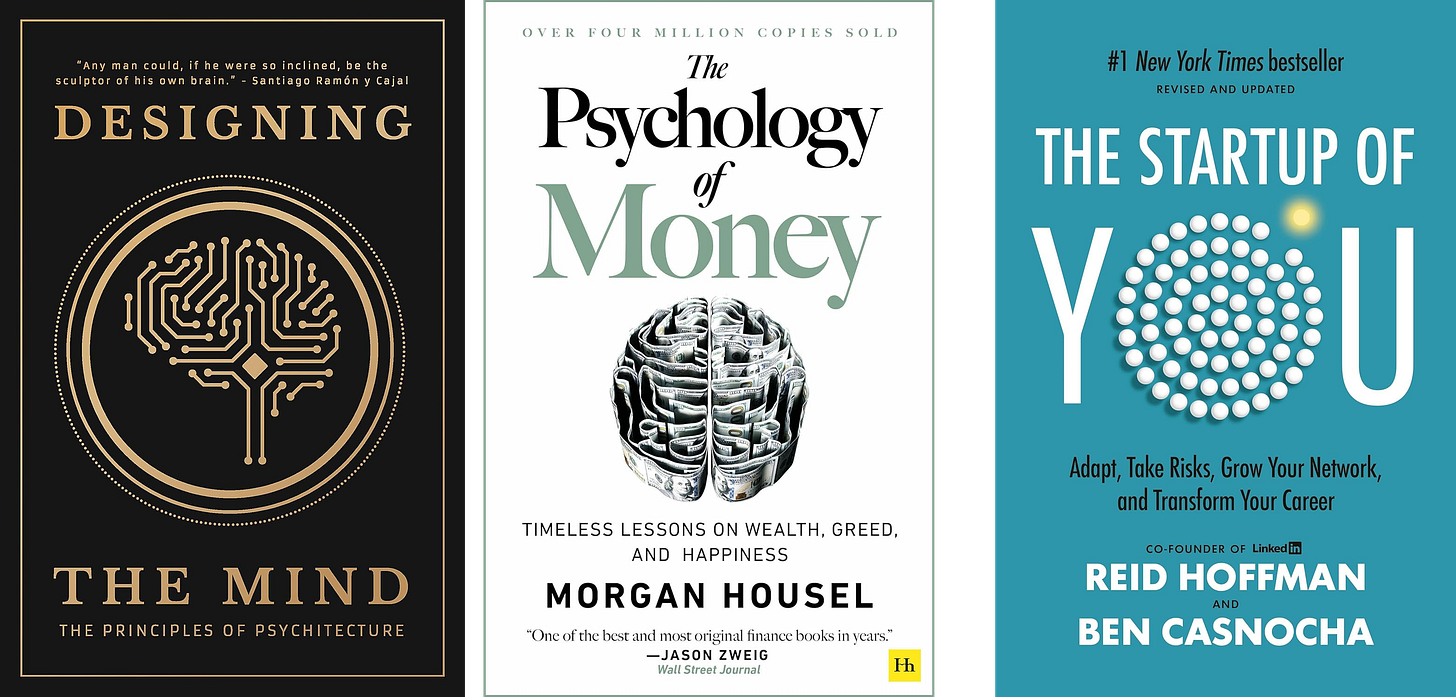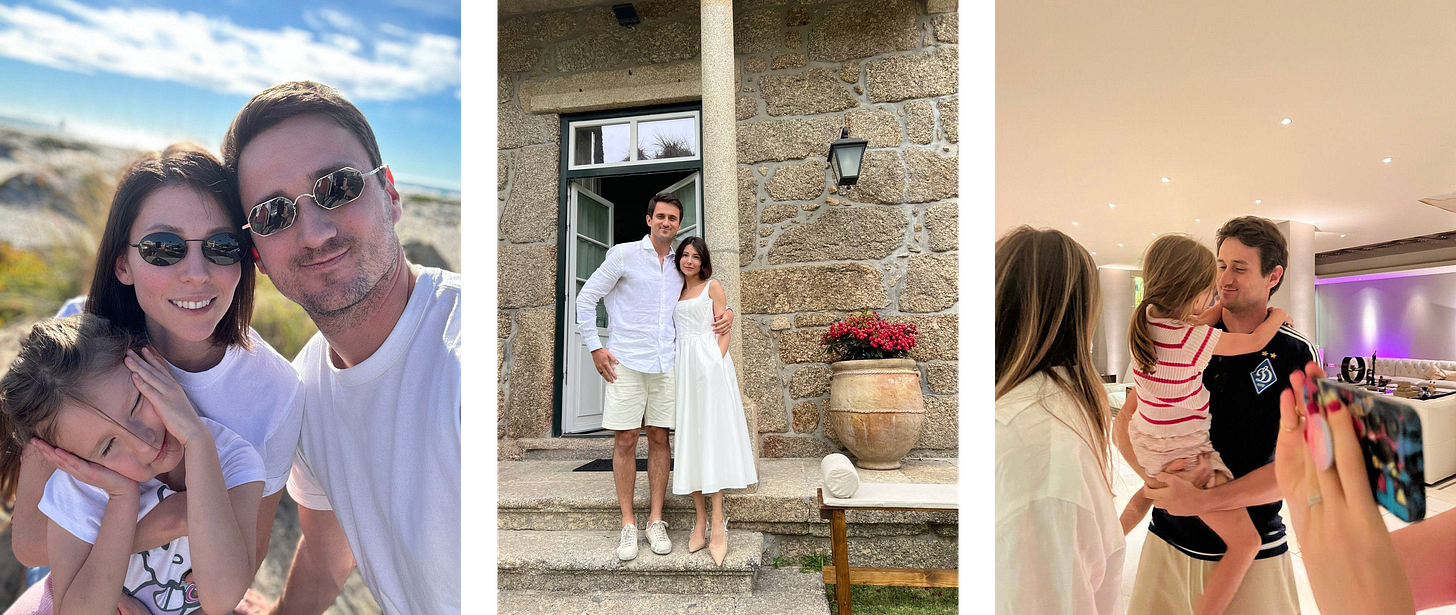Be ready for uncertainty, always: Holidays special | Mindset Matters
This time, the interviewer and interviewee are the same person.
Hi there, folks.
Today' I’ll start with a disclaimer:
this issue of Mindset Matters is different.
You know, the holiday season is the perfect time to reflect on "how have I ended up here and why?" It's a moment to review your life choices, lessons, values, and beliefs.
In other words, it's a time for holding a mirror up to your soul and having an extremely honest conversation with yourself about your mindset.
Has it changed in 2023?
Do I need to adjust my beliefs in 2024 to achieve what I desire?
How can I channel my principles into current and future ventures?
These thoughts have inspired me to write down this very special issue of Mindset Matter, where "Today’s guest" is me.
The format remains the same: 8 questions about everything on mindset. Unfiltered answers.
Only this time, the interviewer and interviewee are the same.
Whether you’re reading this letter sitting in a cozy corner of your home, sipping tea, or in the airport heading to a perfect holiday trip, or on a constant run between tasks and responsibilities — I hope you enjoy and resonate with something or find my personal answers interesting.
So again, today’s guest: me
Hi there! I'm Dima, entrepreneur with investor background. Co-founder and former CEO @ Reface. Ukrainian. Scout @ a16z. Investor.
I launched the Mindset Matters to share thoughts and lessons I've gathered from conversations with serial entrepreneurs, top-notch VCs, builders, and doers I admire and respect. About more than just work.
Bi-weekly. Free. In your inbox and here, on Substack.
1. What's a common "meaningful life" advice that you just can't stand?
To be honest, a lot of them.
That's actually why this question is the first one I ask my Substack guests.
Personally, my motto is: be kind, as everybody is fighting their own hard battle. And everyone’s story is unique.
So truly meaningful life advice can’t be one-size-fits-all — what might work best for one person can be absolutely useless or even harmful for another.
But still, here are 2 commonly known statements I can’t stand:
1. “You need to hustle to become successful” (saying HI to Gary Vee 😅)
Yes, you probably need to hustle early in your career to gain expertise and knowledge. But, it’s crucial to ask yourself — what's next? Why am I doing this now?
What’s important to me in the long run?
How do I define “success”? How do I measure the impact?
For me, my definition of success is not measured by the time spent hustling and working, or the $ in my bank account.
I measure success by:
the number of days I feel happy
the positive emotions I experience around people I love and respect
a positive impact I have on their lives.
Sure, if a 24/7 hustle aligns with your values and definition of happiness, go for it.
But for folks whose views similar to mine, a piece of advice I believe in is
“measure the expectations”
No, I don’t take this as an “under-promise, over-deliver” thing.
Rather, it’s an approach on how to set personal goals and growth vectors.
Because honestly not hustling all the time can be… humble. At first.
But believe me, it's worth lowering your expectations (from worklife) to dedicate time to your health, family, and closer connections.
(via )
Only then, after achieving a balanced life and feeling good about your expectations from life and yourself, not being 100% focused on professional growth won’t hold you back. It won’t summon anxiety either.
On the contrary, it will help you stay sane in the long run.
2. Do what you love, and you will never have to work
I always laugh when I hear this statement.
Everything great in life includes a mix of good and bad times.
Sometimes, even if you sincerely love what you do, you have to do things that aren’t exciting or comfortable. But that's a part of the journey.
Overcoming obstacles while still enjoying the ride shapes who you are today and who you will become tomorrow.
That's what I love about life — the inevitable movement that brings a range of emotions.
Later, you realize how even those negative emotions were crucial in helping you become a better person, both for yourself and your loved ones.
2. If you could change one thing about our world (or your industry), what would it be?
It may sound unrealistic, but — the infinite cycle of mankind’s greed and will to get more and more resources.
History shows that this — resources and their accessibility — has been triggering wars, conflicts, oppressions, genocides, and race of superpowers.
Sure, as Ukrainian I hope we’ll find a way to prevent wars in the future (believe me, noone can be more “anti-war” than the country who was tied in a war by invasion). Otherwise, our world may not exist for long, as mankind becomes more and more trapped into the endless circle of battle for resources.
So, I dream of a world where resources are infinite and accessible to everyone.
To sound less idealistic — I’m thinking about technology developments, that’d create global security and defense systems based on the mutual containment of aggression. I’m thinking about renewables. I’m thinking about overpopulation issue (globally, unbalanced proportion of resources - territories - population).
In this world, countries would be valued for their economic attractiveness, rights, and freedom, rather than on notions of national superiority, religious radicalism, or the rule of power.
So, it’s a bit of techno optimism, sure.
But I hope someday it at least partially would happen and our kids got a chance to have a life filled with happiness. 🙂
3. What's a big lesson life has taught you?
3.1. You should always be ready for uncertainty, pain, and constant work.
As Ukrainians, everyone in my close circle is going through an endless, intensified cycle of pain — uncertainty — constant work.
This isn't an entirely new formula — previously, I saw this triad as exclusive to work-life challenges, feeling safe and stable in my comfortable life outside of work.
The war has shown that you can't just hit "save" and be 100% sure that everything you've gained before — status and life stage — will remain unchanged.
War simply knows no status.
So, the sooner you adapt to new circumstances and become ready to continue the cycle of pain — uncertainty — constant work, the more resilient you become. With time, this transformation even brings a light excitement — "wow, I can adapt and strive even when things get really brutal" (again, it’s about managing your own expectations, right?)
3.2. The borders/territories will always be moving, international agreements will be broken, and the powerful will always try to conquer weak ones. But this shouldn’t stop you from finding enjoyment and making the people around you happy.
4. Have you picked up any habits or routines recently that have made your days better?
Be grateful for your life and the people, your tribe, around you — that's real fortune.
Morning exercises since I was 6, without missing a day! It's always a good solution, even after an extra party the day before. My greetings to Mr. Humberman.
Kiss and hug your close ones every day, plenty of times a day.
Tennis and football (or any sport, especially team sports) will give you a lot of great energy and insights on how to lead/support a team, motivate people, and contribute to mutual success. Tennis is especially great for your physical, mental, and psychological health, and offers a great challenge. I love observing how my attitude and state of mind change over the years playing this amazing game.
Btw, check my post about insights tennis got me
The most important: call your parents every day if you can, as love and life advice from the most important people is the best way to start or end a day, and not just to make it better.
To be continued…
5. What's one thing you wish someone had told you when you started your career?
By building sincere relationships with people and being a true fellow/friend, you'll gain more energy and advancement in life than any career advice can offer. So be genuinely interested in people and their lives — it brings much more joy and fulfillment than any career achievement. You'll discover so many life lessons that you would never learn on your own.
Think about something that will remain stable within 100 years or even throughout human history. You might find yourself doing something that makes your life incredibly happy and unique. My parents, who are doctors, inspire me daily with their professionalism, empathy, belief in humanity, and truly life-saving work.
Don’t do "jobs" just because they sound fancy, like investment banking or management consulting were in my time. Think about future markets and jobs of the future. Most of us, especially in entrepreneurship, no longer have a single, defined profession.
6. Do you think any big organizations or systems (like schools or international groups) are going to change a lot soon?
Hopefully, a lot. As they have to be changed.
Moreover, we must change them if we want a better future for our children. in the case of schools.
I observed this topic a lot and interviewed parents from all over the world with different backgrounds (Israel, US, UK, EU, SEA) and everybody seems at least concerned.
Schools are a prime example of how modern organizations are not serving the values and needs for which they were created.
I don’t mean that everything is super bad — certainly, there are countries and organizations doing well enough.
But my concern extends to the next 50-100 years, and I’m not overly optimistic (think about factors like TikTok, misinformation, bureaucracy and corruption in schools, and political influence).
We have to rethink the fundamentals of why children go to school and what they should gain there — not just basics like physics, but also moral education, psychology, friendship.
At the same time, we need new ways to overcome the other challenges of the modern world with the help of technology, clean energy, etc.
7. Have you read, watched, or heard anything lately that really stuck with you? Why did it strike a chord?
My top-3 books lately:
“Designing the mind” (link)
An enormous amount of knowledge and sources (philosophical, economic, psychology) to consciously design the mind, to improve mental habits and life outcomes.
It combines different views from Eastern and Western philosophy on how to self-program, apply psychological models, develop habits and routines, and practice mindfulness.
I especially enjoyed the frameworks of practical application frameworks for real life.
Additionally, the concept of “mental architecture” from "Designing the Mind" has intriguing parallels to AI and machine learning — adaptive learning, cognitive biases, neural networks, feedback loops, limitations, and biases, all while keeping ethical components in mind. Enjoy! 😅
“The psychology of money” (link)
“Psychology of money” is that type of book that fit a person of any age, state of mind, or wealth. So for me, the particular value lies in comparing the insights I gained from this book three years ago to those I understand now.
The book offers insightful perspectives on how our behaviours and beliefs shape our our financial decisions, the role of luck and risk, the effects of compounding and saving, the impact of emotions, and more.
But the most important takeaway and rule for me is the principle of «freedom and control» — financial decisions should aim towards gaining freedom and control over one's life rather than merely increasing wealth.
"The Psychology of Money" is not just about how to invest or manage finances but about understanding the psychological and behavioural aspects that underlie our financial choices.
“The startup of you” (link)
This book was important for me now, when I already gain some experience to think about and reflect on — what have I achieved and what’s coming next.
It provides a roadmap for professional success in the modern world by combining entrepreneurial strategies with personal career development.
It's about taking charge of your career path, continuously learning and adapting, and leveraging your network and resources to navigate the professional landscape effectively.
8. What moments make you feel like your life is genuinely wonderful?
No more words needed. Right?
That's all for today. And for this year.
I hope you’re not questioning your subscription to this content series. If you are — DM me, and I promise to do better next year.
As usual, feel free to leave a comment or share this newsletter with someone who might benefit from these insights today.
Happy New Year!
Yours,
Dima



